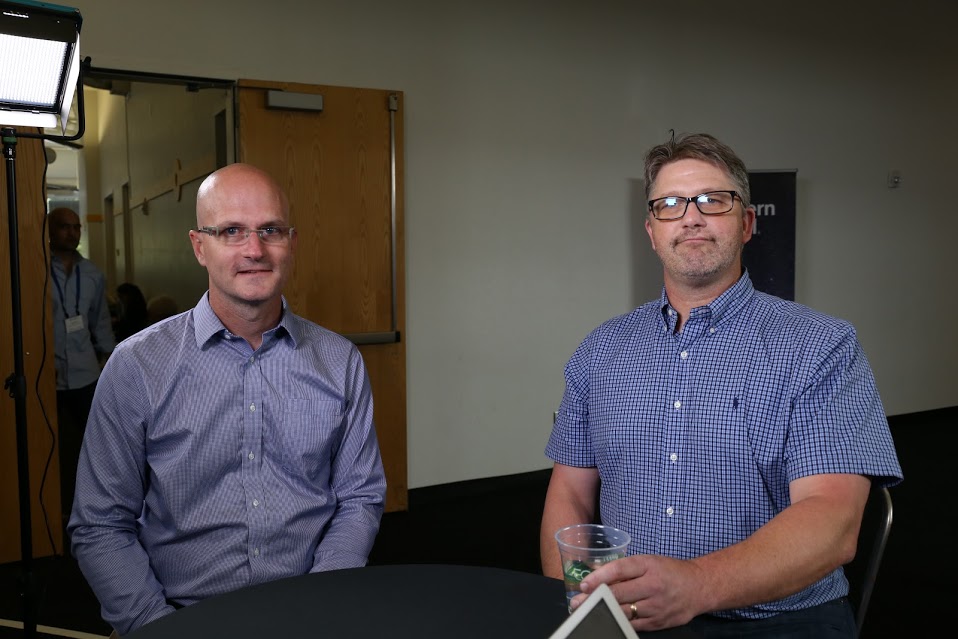 BIG DATA
BIG DATA
 BIG DATA
BIG DATA
 BIG DATA
BIG DATA
The Campbell Soup Co., one of the longest-operating food brands in the U.S., maintains data on every load of tomatoes that comes into its processing plants, and has been collecting this information over the past five years. But the application of data science to farming and produce processing is fairly new, and Campbell is working on a project involving tomato-growing suppliers to channel its trove of valuable information into a big payoff: sustainability.
“It’s driving progress on the farm and creating systems that everyone can use more easily. That’s how we drive sustainability,” said Dan Sonke (pictured, left), director of sustainable agriculture at Campbell Soup.
Sonke offered his thoughts on data and agriculture during an appearance on theCUBE, SiliconANGLE Media’s mobile livestreaming studio, and answered questions from host Linda Martin (@Luccazara) during this year’s FOOD IT: Fork to Farm in Mountain View, California. Sonke was joined on the set by David Sypnieski (pictured, right), founder and chief executive officer of Athena Intelligence Inc., to discuss Campbell’s focus on data and Athena’s role in helping to meet sustainability goals. (* Disclosure below.)
Finding relevant data was not the issue. Campbell had access to five years of public and private information, including satellite imagery, soil conditions, weather station reports and river flows, along with the company’s own private internal metrics.
The challenge for both Athena and Campbell was to create the proper technology that would clean-up and normalize datasets. “As Campbell Soup was collecting all of the data, the entire industry had never really been familiar with the structure of how to actually use data in any kind of meaningful, data science or analytical way,” Sypnieski explained.
Campbell decided to focus on tomato solids, an industry measurement of how much sugar is in the produce. The higher the solids content, the easier it is for Campbell to process tomatoes, thus requiring less energy, Sonke explained.
The Campbell executive said that the company is trying to “tease out” what soils produce higher solids or irrigation practices that raise sugar levels through the data analytic tools provided by Athena. “This is extending the reach of the data outside the four walls of our factory into the farm,” Sonke concluded.
Watch the complete video interview below, and be sure to check out more of SiliconANGLE’s and theCUBE’s coverage of the FOOD IT: Fork to Farm event. (* Disclosure: TheCUBE is a paid media partner for FOOD IT: Fork to Farm. Neither Western Digital Corp., the event sponsor, nor other sponsors have editorial influence on theCUBE or SiliconANGLE.)
THANK YOU